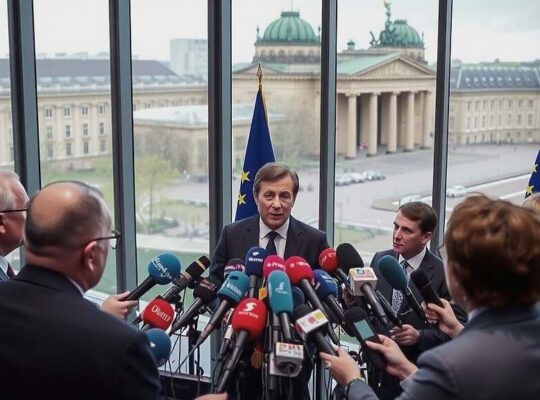The German Green Party faces a complex reckoning as former Bundestag representative Stefan Gelbhaar formally seeks a return to frontline politics, announcing his candidacy for the Berlin state parliament (Abgeordnetenhaus) in the Prenzlauer Berg-West district. Gelbhaar’s decision, revealed in an interview with “Der Stern”, arrives amidst ongoing internal scrutiny of the party’s handling of past accusations and raises questions about the potential for genuine healing within the Berlin Green faction.
Gelbhaar’s motivation for re-entering the political arena is multifaceted, ranging from a desire to actively participate in the re-evaluation of recent events to leveraging his experience in areas such as transportation policy, notably the development of the Deutschlandticket. He explicitly acknowledges the challenges ahead, stating the path is “not the easy one” citing the “traces” left by the events of the past several months. His candidacy is particularly notable given the underrepresentation of voices from eastern Germany within the Berlin Greens, adding another layer to his strategic rationale.
The backdrop to Gelbhaar’s return is a tumultuous period for the Green Party. Prior to the 2021 federal election, accusations surfaced alleging inappropriate behavior toward women. While the most serious charges of sexualized violence ultimately proved to be based on fabricated evidence, a subsequent internal investigation by two prominent Green legal experts delivered a damning assessment of the party’s response. The report highlighted significant failings in the way the allegations were managed and further indicated that numerous women within the Berlin state branch felt impacted by what, while not constituting a criminal offense, was perceived as potentially overbearing conduct on Gelbhaar’s part.
Gelbhaar, in his interview, claims to have engaged in considerable introspection concerning the situations where his presence may have created discomfort for others and where misunderstandings and mistakes may have occurred. He asserts his communication style has become “significantly clearer.
However, his comeback is not without its critics. Some within the party suggest his candidacy risks reopening old wounds and could be seen as a move to rehabilitate his image rather than a genuine commitment to addressing the underlying issues. The decision places a critical spotlight on the Green Party’s efforts to foster a culture of accountability and signals the ongoing struggle to reconcile political expediency with the demands of ethical leadership and genuine reform. The outcome of the district nomination process in Pankow will serve as a crucial test of the party’s commitment to confronting its past and shaping a more inclusive and responsible future.












